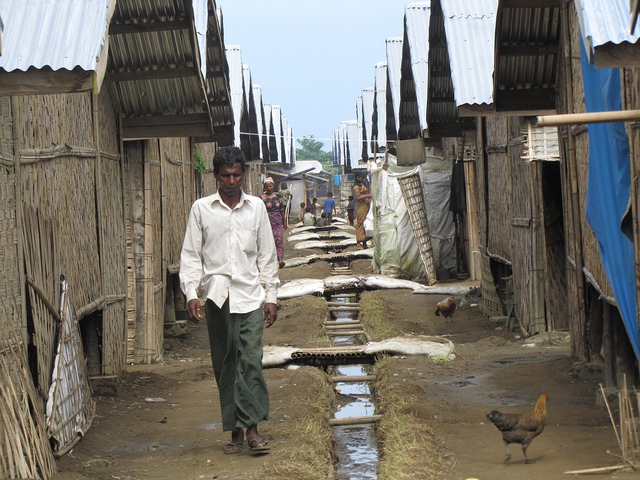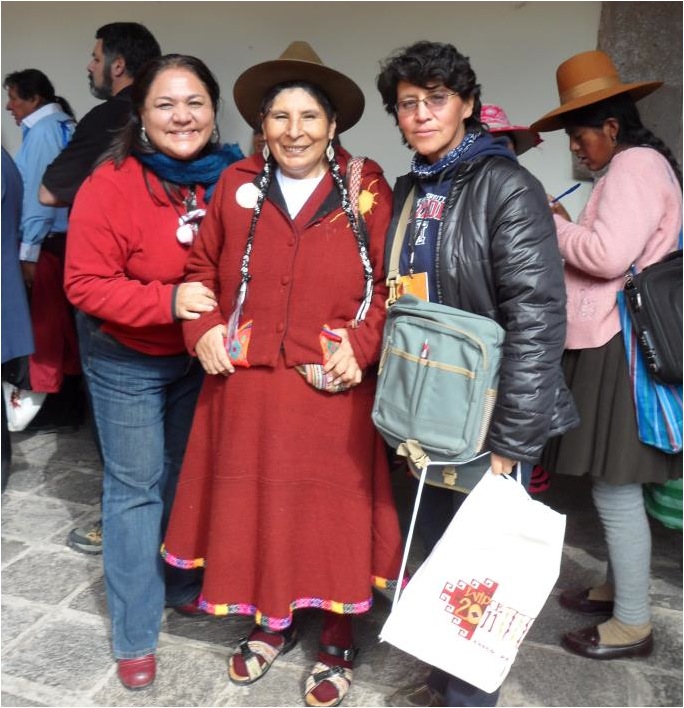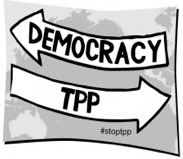Features
SYRIA: THE STRUGGLE CONTINUES
The Grassroots Civil Opposition Survives

by Leila Shrooms, Tahrir-ICN
The discourse on Syria has been dominated by discussions of militarization, Islamization, sectarianism and geopolitical concerns. Conversely there has been relatively little focus on Syria’s grass roots civil opposition. This has led to a lack of knowledge outside of Syria for activists who want to stand in solidarity with Syria’s revolutionaries but don’t know where to start. This article attempts to provide an introduction to some of the many civil resistance initiatives taking place on the ground and efforts at revolutionary self-organization.
BOLIVIA: THE POLITICS OF EXTRACTIVISM

Geopolítica de la Amazonía:
Poder hacendal-patrimonial y acumulación capitalista
by Alvaro García Linera
La Paz, Bolivia: Vicepresidencia del Estado, 2012
by Devin Beaulieu and Nancy Postero, Against the Current
Geopolítica de la Amazonía: Poder hacendal-patrimonial y acumulación capitalista (Geopolitics of the Amazon, Landed Hereditary Power and Capitalist Accumulation, 2012) is the latest defense of the politics and policies of Evo Morales' leftist government by its premier intellectual, vice-president Alvaro García Linera. As the eloquent public spokesman for Morales' governing strategy since the election of the Movement towards Socialism (MAS) in 2005, García Linera has made a name for himself in Latin American leftist thought and political theory.
BURMA: OPEN FOR BUSINESS OF GENOCIDE

by Burkely Hermann, World War 4 Report
"It's not ethnic cleansing. The world needs to understand that the fear is not just on the side of the Muslims, but on the side of the Buddhists as well."
No high-ranking US State Department official spoke these words. It was Nobel Peace Prize winner Aung San Suu Kyi, in an interview with BBC, dismissing credible claims of the genocide of Burma's Muslim Rohingya people, put forward by Genocide Watch, Foreign Policy in Focus, UN Dispatch, Der Spiegel writer Jürgen Kremb, the Kassandra Project, Ramzy Baroud of the Pakistani publication The Nation, and many others. Suu Kyi continued, saying that she condemns "any movement that is based on hatred and extremism," that "the reaction of Buddhists is also based on fear," that the government should deal with these extremists so it isn't her responsibility, and finally that "Burma now needs real change…a democratic society." These comments are deeply disturbing coming from someone given the Nobel prize in 1991 for "her non-violent struggle for democracy and human rights." Some have even asked if she should be stripped of her Peace Prize for statements such as this one.
The struggle of the two stateless peoples in Burma—the Rohingya and Shan—and broader geopolitical issues such as the race for dirty energy tie into one central question: is Burma really open for the business of exploitation and genocide?
GLOBAL WARMING AND THE END OF GROWTH

by Carmelo Ruiz-Marrero, World War 4 Report
Two landmark scientific reports on climate change have just been published. File them under "H" for "horror."
The first one is a digest of the most recent findings of the Intergovernmental Panel on Climate Change (IPCC), which was formed in 1988 to advise the United Nations on all scientific information relevant to the implementation of the UN Climate Change Convention. The Panel periodically publishes a summary of the latest climate science for policymakers, which is subject to line-by-line approval by the 195 participating governments.
INDIGENOUS LANGUAGE RECOVERY IN PERU
An Interview with Miryam Yataco

by Bill Weinberg, Indian Country Today Media Network
Miryam Yataco—educator, language rights advocate and an expert in intercultural bilingual education—has been involved in crafting language recovery efforts for the Indigenous Parliamentary Group in the Peruvian Congress, and as a consultant to Peru's Vice-Ministry of Intercultural Affairs. The daughter of a Quechua-speaking mother originally from the Áncash region and a Spanish-speaking father of Quechua background from Ica region, she grew up in Lima, where her experiences with language discrimination shaped her life's work. She currently divides her time between Peru and New York. ICTMN spoke with her at her apartment on Manhattan's Lower East Side.
TRANS-PACIFIC PARTNERSHIP: STRICT SECRECY
by Pete Dolack, Systemic Disorder
The secret Trans-Pacific Partnership is about to become even more secret, perhaps seen as a necessity in light of plans to make it easier for tobacco companies to sue while making health care more difficult to obtain.
 The governments negotiating the draconian TPP still don’t want you to know what’s in it. Many of them issued cheery press releases congratulating themselves for the "progress" they made last week in Brunei. But you will search in vain for any information on what TPP negotiators are up to. They will now end their practice of "consultation"—the August 23 to 30 negotiations (the 19th round) are the last scheduled. Instead, negotiators will begin to meet in unannounced meetings.
The governments negotiating the draconian TPP still don’t want you to know what’s in it. Many of them issued cheery press releases congratulating themselves for the "progress" they made last week in Brunei. But you will search in vain for any information on what TPP negotiators are up to. They will now end their practice of "consultation"—the August 23 to 30 negotiations (the 19th round) are the last scheduled. Instead, negotiators will begin to meet in unannounced meetings.
In other words, not only is the text of the TPP to remain a secret, the negotiations themselves are to now be secret.
GLOBAL WARMING'S ARCTIC FEEDBACK LOOP
Supertankers to Ply the Great White Slushie by Michael I. Niman, ArtVoice
by Michael I. Niman, ArtVoice
GUANTANAMO JUSTICE: NO JUSTICE AT ALL
by Caitlin McNamara, Jurist
This year will mark the twelfth anniversary of the September 11, 2001 attacks, yet the five men accused of planning those attacks may not go to trial for years. At Guantánamo, where a military commission has been created to try the accused, the prosecution and defense are still arguing basic procedural issues, like how the defense lawyers can communicate with their clients.
In August, I watched at Guantánamo as days of argument were devoted to preliminary issues such as which witnesses should be compelled to testify, to what types of information parties are entitled, and whether the military commission itself violates the US Constitution. But the proceedings were dominated by constant complaints from defense counsel about a lack of access to important information and attempts to resolve procedural issues.















Recent Updates
18 hours 45 min ago
3 days 18 hours ago
3 days 19 hours ago
3 days 23 hours ago
4 days 22 min ago
4 days 17 hours ago
4 days 17 hours ago
6 days 2 hours ago
6 days 16 hours ago
6 days 17 hours ago